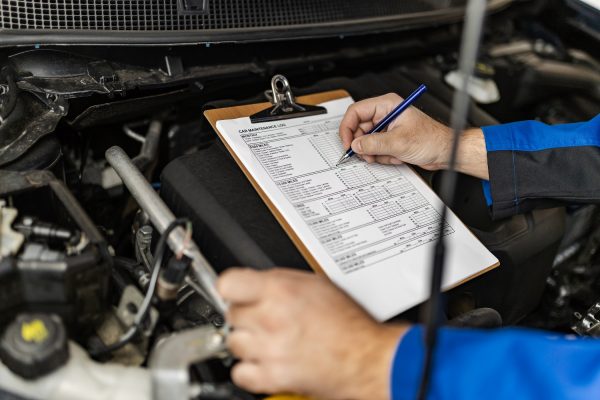It’s a bit of an old chestnut as to what ‘Full Service History’ actually means. If we look at the literal definition, if a car at 100,000 miles had just one service at 50,000 miles comprising an oil and filter change and there was document which recorded this then that would be the full service history. It is the only history of servicing that car.
Don’t get excited though! We then start to think of the legals. How would ‘the man on the Clapham omnibus’, ie the reasonable man, interpret the phrase.
In our opinion it would be a level of servicing at intervals laid down by the manufacturer. As to the level of servicing, it would be attention to as many items that could affect the buying decision of the customer if they knew they were missing. Oil and filter changes would be important but tyre pressures, wash bottle top ups would not.
If the description extended to’Full Manufacturers Service History’ then it would be necessary to have had all the servicing items carried out at each service as stipulated by the manufacturer.
So how much difference does ‘Full Service History’ make? In a recent survey by Kwik Fit, they suggested the value of a car can increase by 25% and based on an average used car price of £5500, this equates to £1500.

Impression works with businesses across the automotive aftermarket supply chain such as parts suppliers, warehouse distributors, motor factors and independent garages. Covering all aspects of automotive aftermarket marketing, including social media, event management, customer newsletters and PR, Impression is able to quickly establish itself within a client’s business and work towards their objectives.








